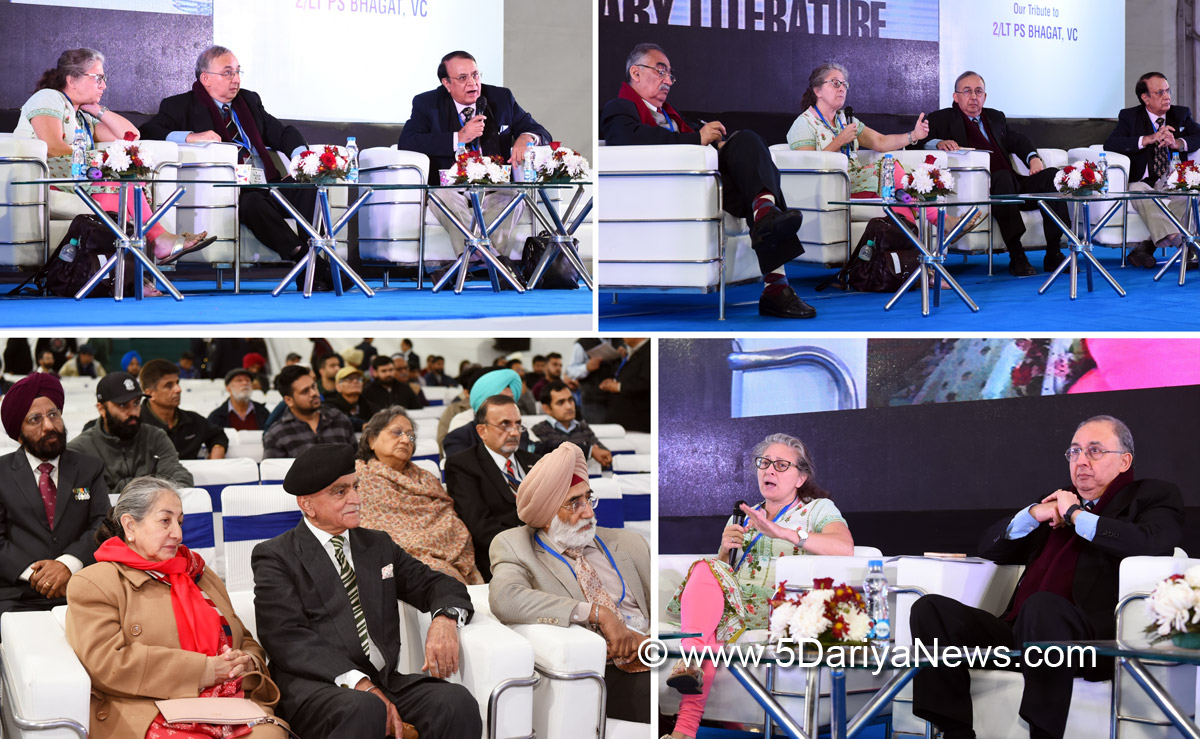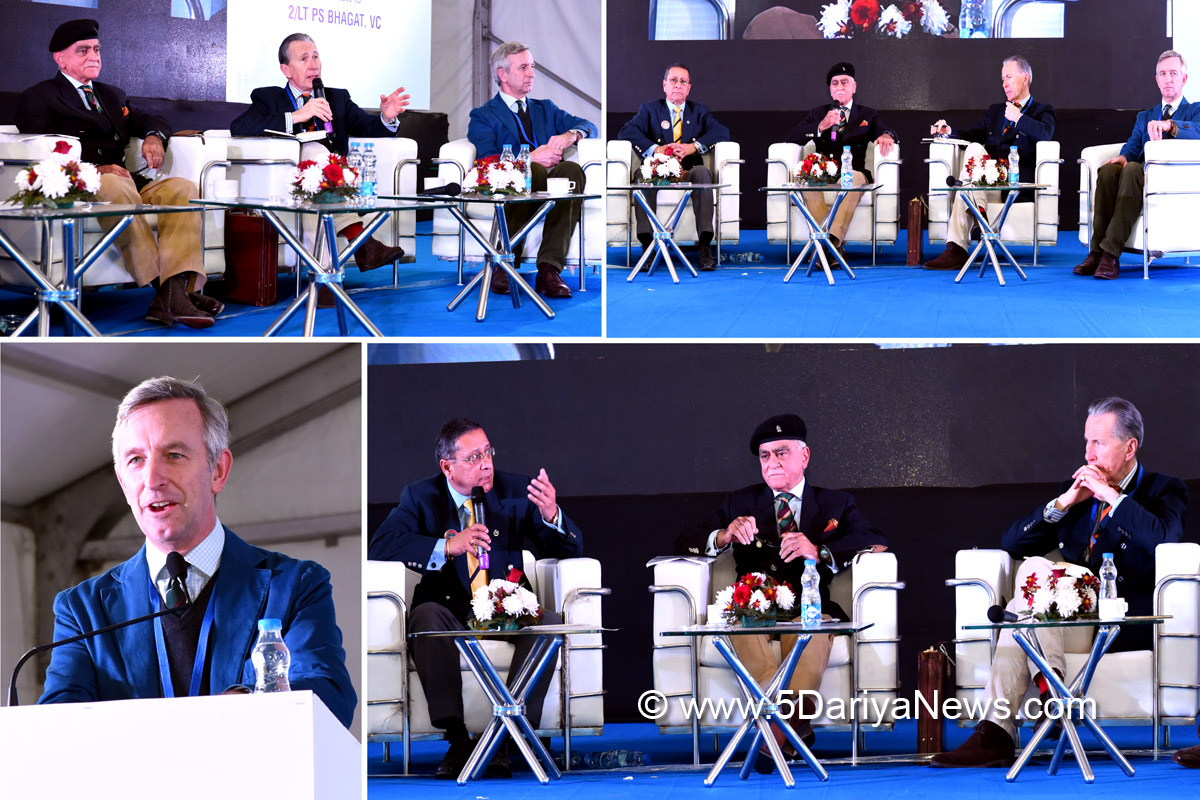
HT Correspondent
chandigarh@hindustantimes.com
Chandigarh : The three-day Military Literature Festival (MLF) concluded at Lake Club, UT, on Sunday with Punjab chief minister (CM) Captain Amarinder Singh honouring the units and kin of the Victoria Cross (VC) recipients who participated in Burma Campaign.
The recipients were awarded to commemorate their gallantry in the battles fought under the British Empire till 1944.
Sharing anecdotes from his life as an Army man, Punjab chief minister (CM) Amarinder Singh said that when he was young platoon commander, his company commander had directed him to pick up the records of the soldiers, go through every dossier and find out what the problems of his squad were.
“He told me to know the soldiers of my platoon by their first names and that’s how we started our careers,” he said, while interacting with a British Army Delegation festival. He also said, “In the field areas of the infantry, one develops a closer relationship with the men compared to the relationships made during peace time.”
British Army Brigadier Celia Jane Harvey who was part of an interactive session with the CM, said there are more than 200 Sikhs in the armed forces in the British Army, adding that they make a very strong contribution to the defence services.
On the occasion, the CM’s senior advisor and MLF chairman Lieutenant General T S Shergill (retd) said the next edition of the festival would focus on the 75th year of World War-2, Burma Campaign and the 80th year of the World War-2 with reference to German operation in Dunkirk (France). On the occasion, he expressed gratitude to the general officer commanding (GOC) of Western Command, Lieutenant General RP Singh, as well various wings of the UT administration, for their support and cooperation in organising the event.
Meanwhile, the CM also honoured Sukhjinder Kaur, the daughter of Lieutenant Colonel Anant Singh who commanded the 4 Sikh Battalion in the 1965 operation which led to the capture of Burki. HTC






















































































































